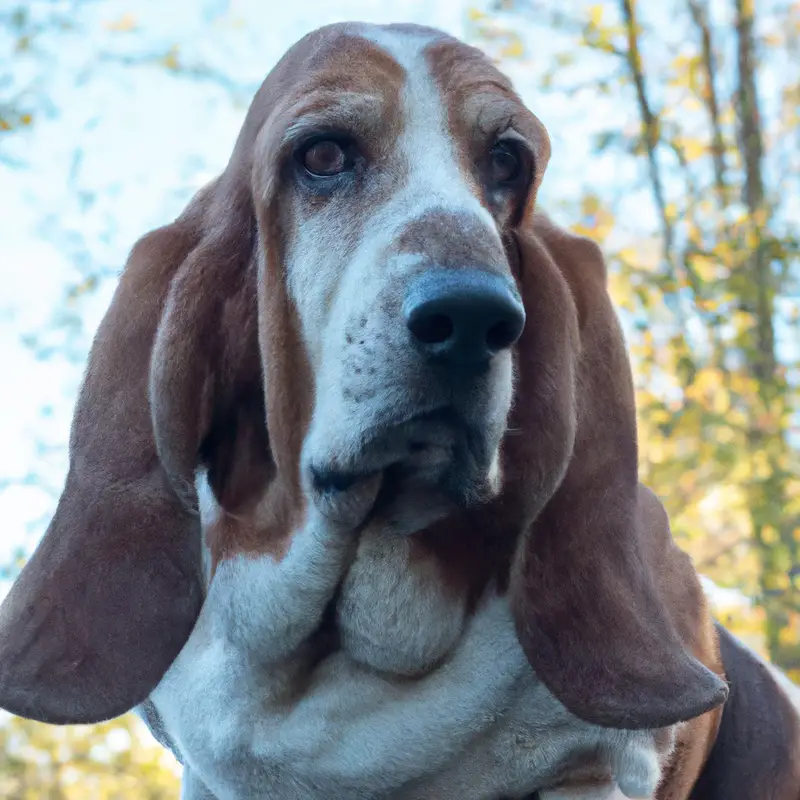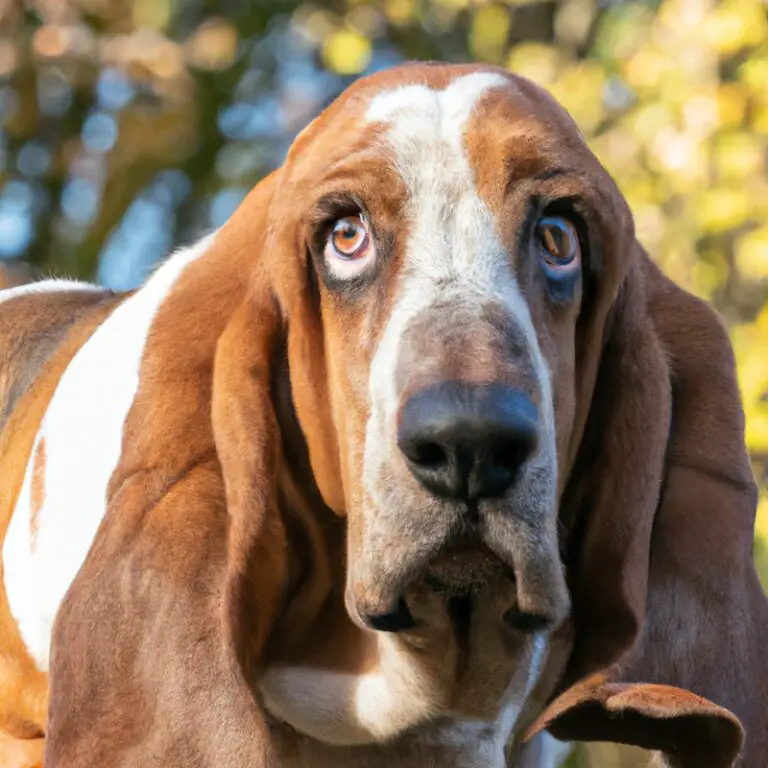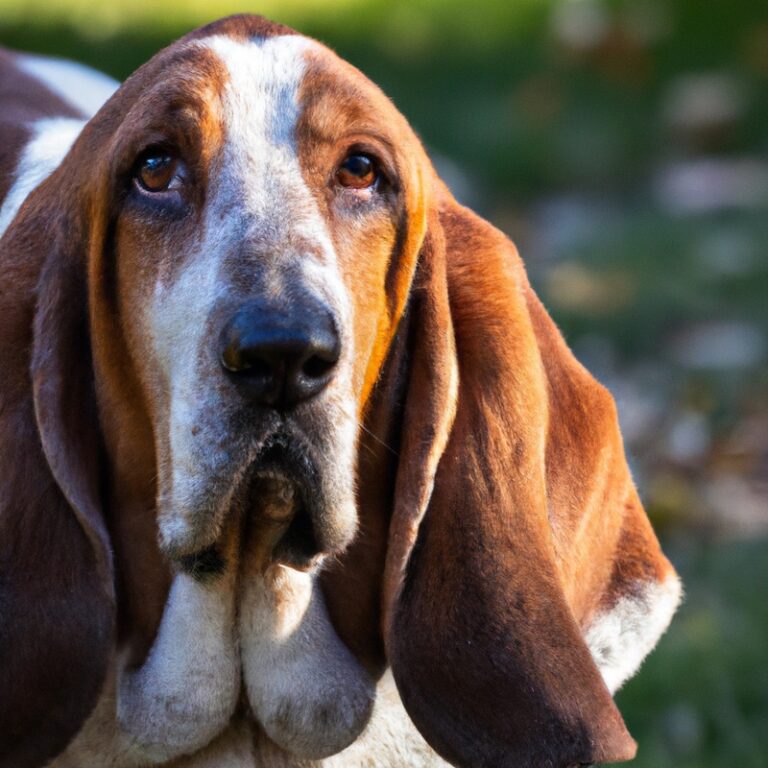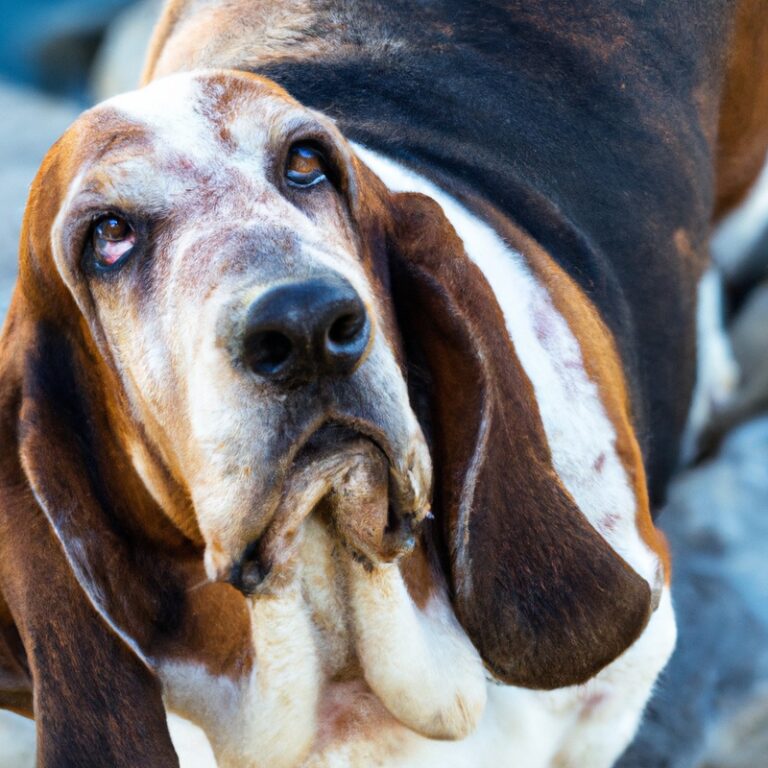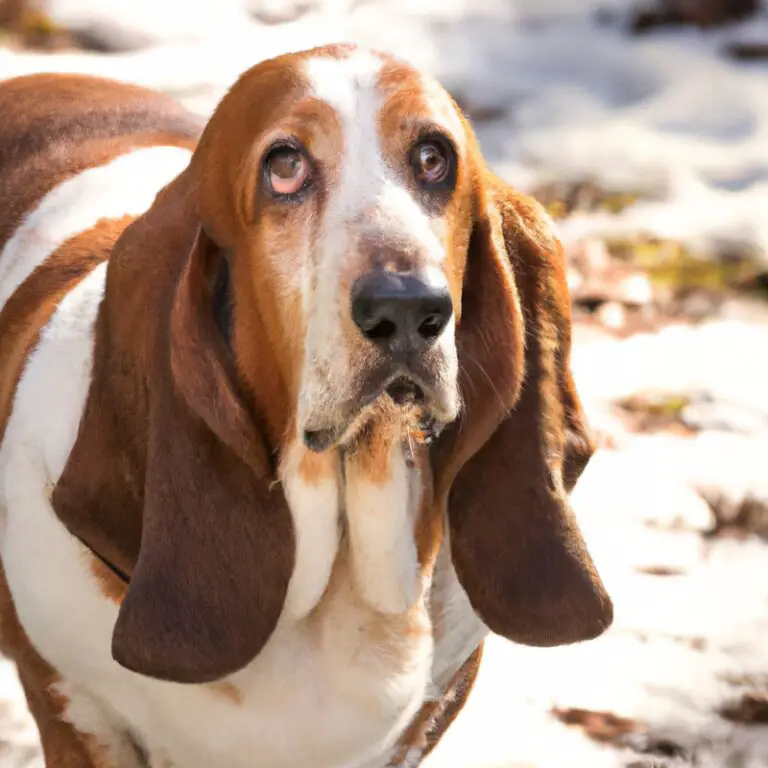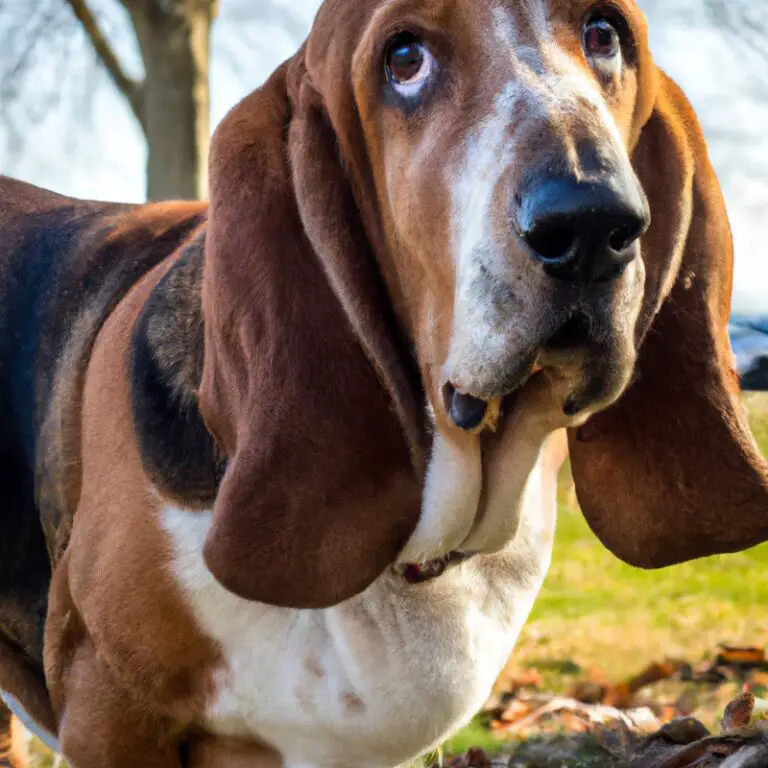Can Basset Hounds Be Aggressive Towards Other Dogs?
Key Takeaways:
- Basset Hounds are generally not aggressive towards other dogs.
- Proper socialization and training can help prevent aggression in Basset Hounds.
- Some individual Basset Hounds may display aggression towards other dogs due to fear or territorial instincts.
- Early detection and intervention are crucial in addressing and managing any signs of aggression in Basset Hounds.
Are you the proud parent of a lovable Basset Hound? These unique and adorable pups can steal your heart with their droopy ears and soulful eyes.
But what about their behavior around other dogs?
Can Basset Hounds be prone to aggression? As an expert in dog behavior, I’ve spent years studying the temperament of Basset Hounds and understanding the factors that contribute to their behavior.
In this article, we’ll delve into the nature of Basset Hounds, explore the key factors that may influence aggression in them, learn how to identify signs of aggression, and most importantly, discover effective strategies to manage and prevent it.
So if you’re eager to ensure a harmonious relationship between your Basset Hound and other dogs, you’re in the right place. Let’s get started!
| Basset Hound | Aggression Towards Other Dogs |
|---|---|
| Temperament | Generally friendly and sociable |
| Training | Proper training and socialization can help prevent aggression |
| Genetics | Bred to be pack animals, may have less aggressive tendencies |
| Individual Differences | Some Basset Hounds may display aggression towards other dogs |
| Trigger Factors | Territorial behavior, fear, resource guarding, or lack of socialization |
| Early Intervention | Early training and socialization can minimize chances of aggression |
| Professional Advice | Consult a professional dog trainer or behaviorist for specific cases |
Understanding the Nature of Basset Hounds
Overview of Basset Hound Temperament and Characteristics
Basset Hounds have a friendly and easygoing temperament. They are known for their affectionate nature and love for human companionship.
Bassets are generally good with children and other pets, making them great family dogs.
They can be a bit stubborn at times, which may affect their obedience training. Bassets are scent hounds and have a strong sense of smell, which can sometimes distract them during walks.
They are also prone to obesity, so regular exercise and a balanced diet are important for their health.
Overall, Basset Hounds are gentle, loyal, and sociable dogs.
Key Factors That Influence Aggressive Behavior in Basset Hounds
Key Factors That Influence Aggressive Behavior in Basset Hounds:
- Socialization and Training: Lack of early socialization and inadequate training can contribute to aggressive behavior in Basset Hounds. Proper socialization helps them become comfortable around other dogs and people.
- Genetics and Breed Characteristics: Basset Hounds have a genetic predisposition to certain behaviors, including aggression. It is essential to consider their breed characteristics and temperaments when addressing aggression issues.
- Territoriality and Resource Guarding: Basset Hounds may display aggression when they feel their territory or valuable resources are threatened. Understanding their territorial instincts and addressing resource guarding behavior is crucial in preventing aggression.
Factors That Contribute to Dog Aggression
Socialization and Training
Socialization and training are essential for a well-behaved and non-aggressive Basset Hound.
Through socialization, I expose my dog to various environments, people, and other dogs from a young age, to help them feel comfortable and confident.
This helps prevent fear-based or defensive aggression.
Training focuses on teaching basic commands and proper behavior, allowing me to establish myself as the leader and ensure my Basset Hound understands boundaries.
Consistency, positive reinforcement, and patience are key when it comes to socializing and training a Basset Hound.
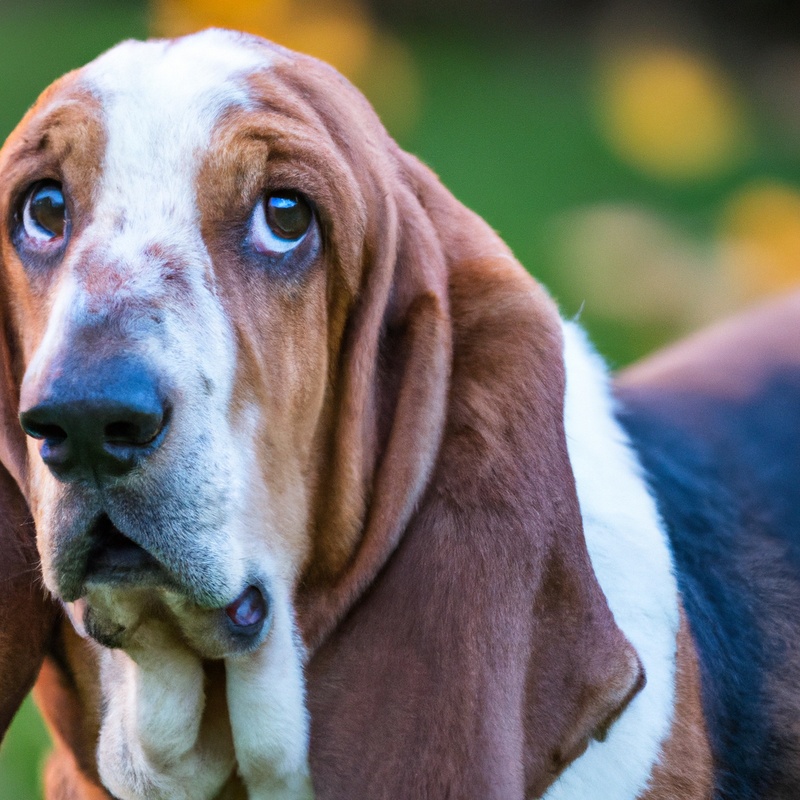
Genetics and Breed Characteristics
Genetics and breed characteristics play a significant role in a dog’s behavior, including aggression.
In the case of Basset Hounds, their genetic makeup contributes to their overall temperament.
Basset Hounds are generally known to be friendly and good-natured dogs.
However, it’s important to note that aggression can still be present in individual dogs, regardless of breed.
Some genetic factors may predispose certain Basset Hounds to be more prone to aggression, but it varies from dog to dog.
It is crucial to consider these genetic factors while understanding and managing aggression in Basset Hounds.
Territoriality and Resource Guarding
Territoriality and resource guarding are two factors that can contribute to dog aggression, including in Basset Hounds.
Like many other breeds, Basset Hounds have a natural instinct to protect their territory and possessions.
They may become defensive and even aggressive when they feel their space or belongings are being invaded or threatened.
This behavior can manifest in various ways, such as growling, snapping, or even biting.
It’s important for owners to be aware of these tendencies and take steps to manage and prevent aggression in their Basset Hounds through early socialization, training, and providing appropriate outlets for their territorial and resource guarding instincts.
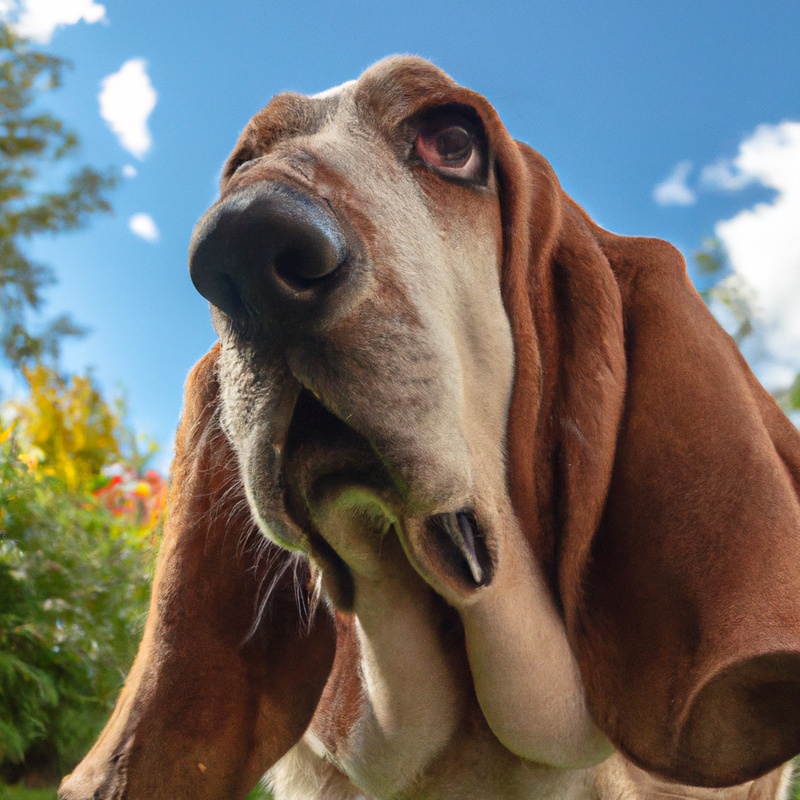
Signs of Aggression in Basset Hounds
Body Language and Vocalizations to Look Out For
When observing a Basset Hound’s body language and vocalizations, there are specific signs that may indicate aggression towards other dogs. Look out for raised hackles (the hair along their back), a stiff or tense body posture, direct eye contact, and bared teeth.
Other signs can include growling, snarling, and barking fiercely.
Pay attention to any signs of discomfort or unease, such as cowering or trying to hide. Remember, each dog is unique, so understanding your Basset Hound’s individual cues is essential for recognizing potential aggression towards other dogs.
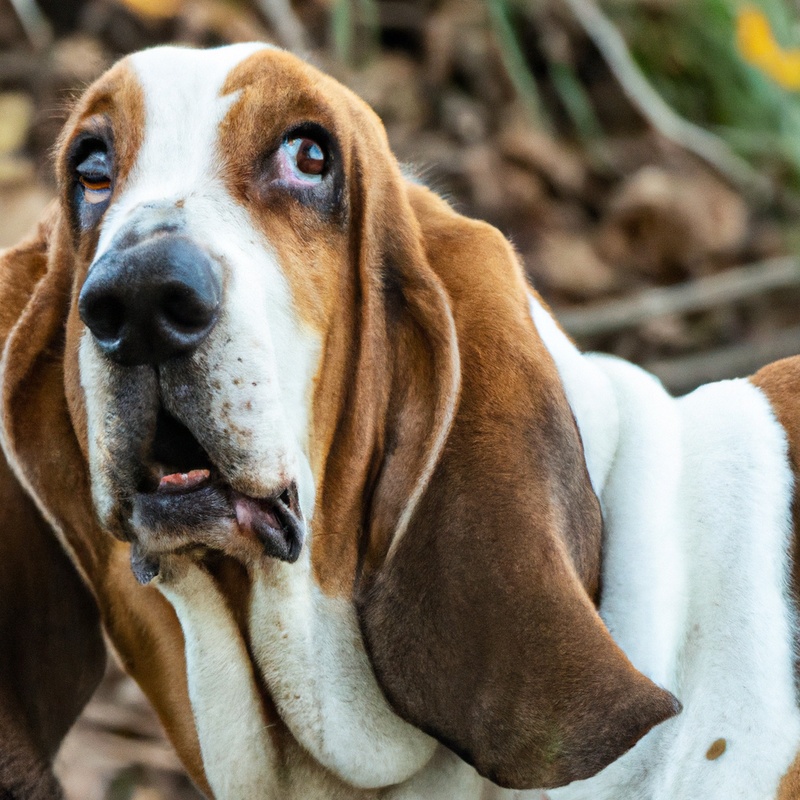
Aggressive Behaviors Toward Other Dogs
Aggressive behaviors toward other dogs can be seen in some Basset Hounds. This can include growling, lunging, barking, or even fighting with other dogs.
It is important to understand that aggression in dogs can stem from various factors such as fear, territoriality, or lack of socialization.
If you notice any signs of aggression in your Basset Hound, it is crucial to intervene and seek professional help if needed. Handling aggressive behaviors toward other dogs requires proper management, training, and controlled exposure to other dogs.
Managing and Preventing Aggression in Basset Hounds
Early Socialization and Obedience Training
Early socialization and obedience training are essential for Basset Hounds.
Exposing your dog to different people, animals, and environments from a young age helps them develop good social skills and reduces the likelihood of aggressive behavior later on.
Obedience training teaches them basic commands and helps establish your role as the pack leader.
Remember to start training early, be consistent, and use positive reinforcement techniques.
Also, provide plenty of opportunities for your Basset Hound to interact with other dogs in a controlled and supervised manner.
Controlled Exposure to Other Dogs
Controlled exposure to other dogs is an essential step in managing and preventing aggression in Basset Hounds. It involves gradually introducing your Basset Hound to other dogs in a controlled and supervised environment.
This allows them to learn appropriate social behavior and reduces the likelihood of aggressive reactions.
It’s important to start with calm and well-behaved dogs, gradually increasing the level of interaction over time. Patience and consistency are key when conducting controlled exposure to other dogs, and seeking professional help can provide additional guidance and support.
Seeking Professional Help
If you’re struggling to manage aggression in your Basset Hound, seeking professional help is a great option.
A professional dog trainer or behaviorist can provide the expertise and guidance needed to address your dog’s aggression issues effectively.
They will assess your dog’s behavior, develop a tailored training plan, and teach you techniques to modify your dog’s behavior in a positive and safe manner.
Professional help can make a significant difference in managing and preventing aggression in Basset Hounds.
Don’t hesitate to reach out for support!
Tips for Introducing Basset Hounds to Other Dogs
Gradual and Controlled Introduction Process
When introducing a Basset Hound to other dogs, it is important to take a gradual and controlled approach.
This means gradually increasing their exposure to other dogs and ensuring that the interactions are supervised.
Start by introducing your Basset Hound to calm and friendly dogs in a neutral territory.
Keep the initial interactions short and positive, gradually increasing the duration over time.
Use positive reinforcement techniques, such as treats and praise, to reward good behavior during these interactions.
If any signs of aggression or discomfort are displayed, separate the dogs and try again later.
By taking things slow and providing a controlled introduction process, you can help your Basset Hound build positive associations with other dogs and increase the chances of successful interactions in the future.
Supervision and Corrective Reinforcements
Supervision and corrective reinforcements are key when introducing Basset Hounds to other dogs. I highly recommend closely monitoring their interactions to ensure everyone’s safety.
When a Basset Hound shows aggression or inappropriate behavior, it’s important to intervene immediately.
This can be done by using corrective reinforcements such as redirecting their attention, using firm verbal commands, or utilizing positive reinforcement training techniques to encourage appropriate behavior. Consistent supervision and corrective reinforcements will help create positive experiences and foster good relationships with other dogs.
Final Verdict
Basset Hounds can display aggressive behavior towards other dogs, although it is not a common trait in the breed.
Understanding the nature of Basset Hounds is crucial in managing and preventing aggression.
Socialization, training, and early exposure to other dogs play a crucial role in shaping their behavior.
Additionally, recognizing the signs of aggression and seeking professional help when needed are important steps in ensuring the safety and well-being of both your Basset Hound and other dogs.
By implementing these strategies, you can create a harmonious environment for your Basset Hound and prevent potential conflicts with other dogs.
Trust me, with the right approach, aggression can be effectively managed in Basset Hounds, allowing them to thrive in social settings.

